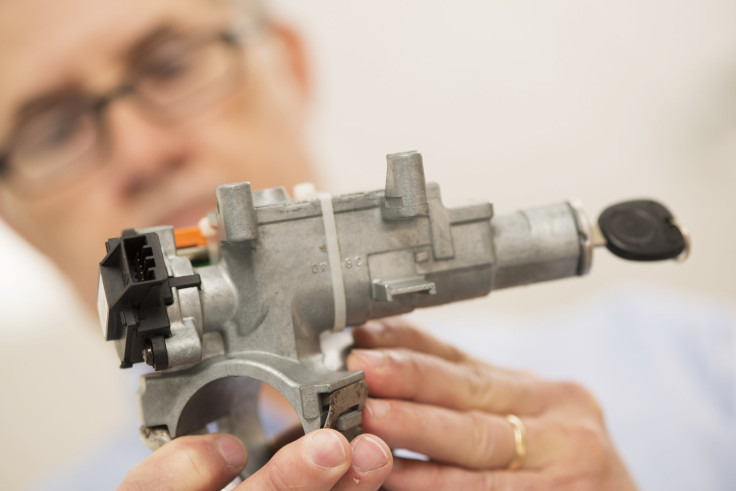GM Recalls Some Cars With Problematic Switches; Judges Others Safe

(Reuters) - General Motors Co last month recalled millions of vehicles with three different designs of ignition switches that could accidentally turn off the engine and disable air bags in a crash. But the automaker has concluded that more than 2 million other vehicles having exactly the same switches are safe.
The vehicles which have not been recalled include full-size crossovers such as the Buick Enclave and Chevrolet Traverse made from 2007 to the present, which share a switch with recalled late-model Chevrolet Camaros and Cadillac CTSs. Two other switch designs are in other sets of vehicles.
GM spokesman Alan Adler said that factors including the kinds of suspension used in different vehicles could explain why a switch that accidentally turned off in one type would not turn off in another, but he said there was no single reason.
The National Highway Traffic Safety Administration (NHTSA), the auto industry regulator, is "in communication with GM about this," the agency told Reuters, without describing what it said to GM.
Former NHTSA head Joan Claybrook said GM, which has recalled nearly 15 million cars this year over switch issues, has not explained precisely why a single switch design would work differently in different vehicles and that it should release the results of vehicle safety tests so that consumers and independent engineers can review them.
Crash data submitted by GM to federal regulators did not appear to show an unusual number of fatalities for the unrecalled cars.
The unrecalled models passed eight "dynamic" tests, such as driving over potholes with a key weighed down by a heavy key ring, and additional tests, including one to see if the switch and key can resist turning off when bumped by a driver's knee, GM's Adler said. Recalled vehicles failed.
"We do not believe there is an unreasonable risk to motor vehicle safety in vehicles we did not recall," Adler said.
Sheryar Durrani, a former NHTSA project engineer who has worked as an engineering consultant for the auto industry, said design differences, including the location of the ignition switches and keys, could mean the need to recall some vehicles might not be as high as for others.
Durrani reviewed a description of GM's tests and said that without a full and public explanation of why switches failed in the recalled vehicles but not in other vehicles, GM left unclear whether it had found "the true root cause of the failure."
A GM engineer in a 2005 internal email released in late June by Congress indicated that cars sharing another switch should be recalled. Engineer Laura Andres told GM colleagues that a 2006 Chevrolet Impala shut down when she hit a pothole, in what a technician described as a switch issue.
“I think this is a serious safety problem, especially if this switch is on multiple programs. I’m thinking big recall," Andres wrote. She could not be reached for comment.
The same week a congressional committee released the Andres email, GM recalled a new group of vehicles, including the 2006-2013 Impala and the 2005-2009 Buick LaCrosse, for switch issues. But it has not recalled the 2005-2009 Chevrolet Uplander and Pontiac Montana, which use the same switch design as the LaCrosse.
A third ignition switch design found widespread use in more than 6 million older GM vehicles, including the recalled 2000-2005 Chevrolet Impala and 1997-2005 Chevrolet Malibu. Unrecalled models with the same switch design include the 2000-2002 Chevrolet Lumina, the 1997-1999 Oldsmobile Cutlass and the 1997-1998 Oldsmobile Achieva.
Adler said the Uplander, Montana, Lumina, Cutlass and Achieva passed all the tests and were not recalled.
© Copyright IBTimes 2025. All rights reserved.




















